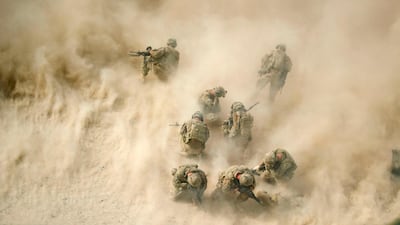A former Australian special forces soldier has revealed that he witnessed “murders” being carried out in Afghanistan by other Australian soldiers.
The former Special Air Service Regiment soldier told the Australian Broadcasting Corporation he witnessed three shootings of unarmed people.
“You can’t shoot unarmed people and not call that murder,” he said in a special report aired on Monday on the Four Corners programme.
He spoke of incidents in which Afghans were killed after surrendering, or while they were detained by the SAS.
The whistle-blower said some of his former colleagues should face charges.
“I think certain people will go to jail … If they go to a criminal trial, I do believe they’ll be found guilty,” he said.
One of the deaths is the alleged unlawful killing of an imam and his son in the village of Sola, in the central Uruzgan province, during a raid by 2 Squadron SAS on August 31, 2012.
A defence investigation found both men were lawfully killed.
Australian historian Dr Phil Chilton, who lectures on insurgency and terrorism, told The National that internal defence investigations of alleged war crimes had proven to be "virtually worthless".
“It’s like having police investigate police. It is good that there are some people within the Australian military willing to speak out, but if it is left to [the defence force] to deal with this the likelihood of anyone facing justice in these cases is slim to none,” he said.
Dr Chilton said soldiers came to “mimic the brutality they feel is being inflicted on them”.
“They are conducting a counter-insurgency … In another incident they were looking for a rogue Afghan soldier who had killed Australians, and they went rogue themselves. I don’t think there is a way of switching people off,” he said.
Dr Chilton said that while an effective justice system to hold people to account might make such incidents less likely, it was difficult to say for sure if it would have a significant impact.
“When special forces are operating they will not necessarily be thinking about long-term consequences, they will be thinking about outcomes. The agenda of Australian, and aligned forces, in Afghanistan was to see the Taliban destroyed … how that gets done is not something they’ll be squeamish about.”
The latest revelations are part of a series of incidents involving Australian forces that have come to light.
In October, Afghanistan’s top human rights body said an Afghan farmer and his son were sleeping in their village of Ala Balogh on the fringes of Tarin Kot, Uruzgan, when they were shot and killed by Australian forces.
Later that month, it was revealed the same body had found five civilians were killed and six injured during a protest near an Australian base in 2010, contrary to claims made by Nato at the time.
In December, allegations against one of Australia’s most decorated veterans came to light as Australian Federal Police launched a second investigation into former SAS Corporal Ben Roberts-Smith.
The Victoria Cross recipient was accused of being involved in the summary execution of an unarmed man in southern Afghanistan in April 2009, and is also being investigated over his alleged involvement in the murders of other unarmed men.
“This is the way empires work. The only way to stop this stuff from happening is to not go there in the first place,” Dr Chilton said.

